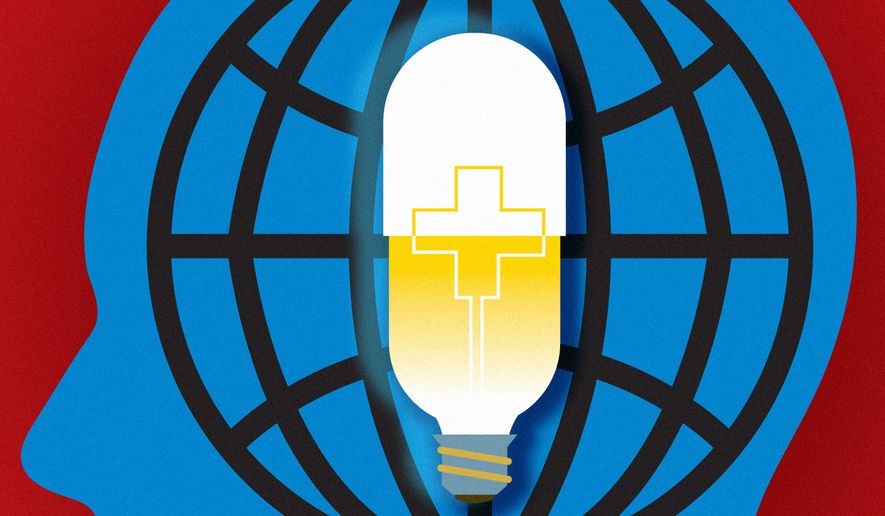OPINION:
Some look at what patients pay for pharmaceuticals in other countries and conclude that those countries are doing something right. Yet if something sounds too good to be true, it probably is. It’s important to understand why drug prices tend to be lower abroad: Foreign governments impose artificial price caps on innovative medicines.
Drug prices in the United States are 270% higher than in Britain, where a government body called the National Institute for Health and Care Excellence decides whether the National Health Service will meet drug manufacturers’ asking price. The national institute employs a dubious metric that is little understood in the United States: the so-called quality-adjusted life year, which puts a value on one year of healthy human life.
Typically, the value is $27,000 to $40,000, less than half the per capita gross domestic product in the United States. If a drug fails this cost-benefit analysis, the British universal health care system does not cover it, so citizens are denied it.
This is why the British generally pay less for drugs, devices and health care. They do not have the same access to therapies that American citizens take for granted. In fact, they often have no access at all.
From 2012 to 2021, 460 medicines were launched globally. In 2022, American citizens had access to 85% of them, compared with 59% in Britain.
Meanwhile, through the higher prices Americans pay, the U.S. subsidizes a disproportionate share of the research and development conducted by companies worldwide. Drug manufacturers have an expectation that their investments will be recouped in the United States; otherwise, many much-needed drugs would never be developed at all.
In short, just because other countries mandate price controls and ration medical care does not mean the United States should be subsidizing their behavior. The U.S. spends twice as much per capita on drugs as comparable countries. Without the U.S., there would be no next generation of drugs. It is high time other countries paid their fair share.
Fortunately, change might be in the wind. As of this writing, Bristol Myers Squibb plans to sell its new schizophrenia drug, Cobenfy, at the same price in Britain and the United States. The company says it might abandon the British market altogether if the government does not accept its terms.
Eli Lilly is also following this path. In an interview with the Financial Times, Lilly CEO David Ricks called Britain “probably the worst country in Europe” for drug pricing and added that England is “not an attractive environment for investment.” As a result, he said, Lilly was reconsidering its plan for a $378 million biotech incubator project, which was activated last year in an agreement with the British government.
Companies such as Bristol Myers Squibb and Lilly know that, unlike past U.S. administrations, President Trump has their back. He has labeled countries like Britain “freeloaders.” He understands that those countries need to do what is right by shouldering more of the costs of global R&D. Mr. Trump is giving companies the space to act voluntarily and allowing them to take credit for their actions.
Still, this problem cannot be solved by one company or drug at a time. Change happens slowly, especially on a global scale, and foreign governments that benefit from the current system will try to maintain the status quo. Whether they threaten to revoke intellectual property protections or try to quantify human lives through pseudoscientific assessments, they will use every tool at their disposal to resist a level playing field.
This means the White House must negotiate stronger trade deals with foreign countries to get them to contribute more.
I agree with those who argue that the Trump administration should treat drug pricing like a trade issue and focus on pressuring foreign governments to meet, or at least approach, the market-and-value-oriented prices that exist in the U.S. This would make more sense than a most-favored-nation policy, which would import socialist price controls from abroad.
When other countries set artificially low drug prices, they undervalue human life. Price caps are not equitable and do not translate into adequate health care, but Mr. Trump has a unique opportunity right now to lead the world in a new direction. It is not just about the cost to Americans; it is also about improving the health of all human beings through freedom and innovation.
• Jack Kalavritinos is a former associate commissioner at the Food and Drug Administration and senior adviser in the Health and Human Services Office of the Secretary in the Trump administration. He is the founder of the Washington Health Innovation Council.




Please read our comment policy before commenting.